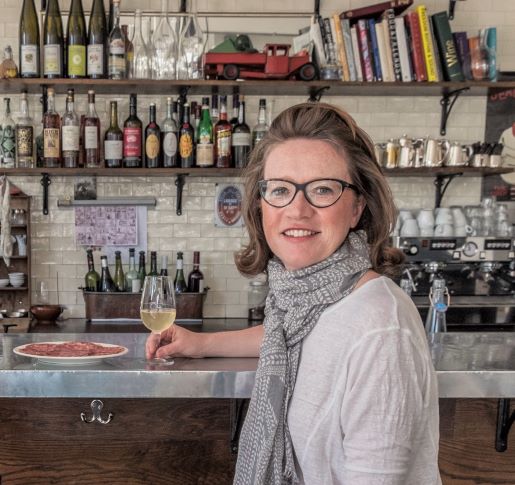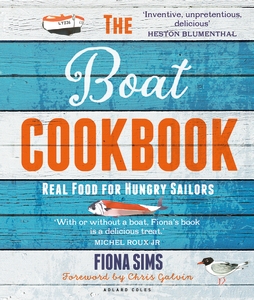So, you want to write a cookbook?

You, and thousands of others. In the last decade, food writing and blogging has assumed rock critic status. Everyone is writing about food – even lawyers and bankers in their spare time. And a lucky few even manage to get a cookbook published.
You can thank the democratisation of restaurants – and the late, great Anthony Bourdain, who paved the way for a new style of food writing with his Kitchen Confidential series, which was as concerned with what happens out the back as on the tables out front.
But back to this writer and the days when she harboured ambitions to publish her own cookbook.
I have been a freelance writer on food, drink and travel for over twenty years, contributing to many different publications (from The Times and The Telegraph to Decanter and Delicious), occasionally via a coveted column, sometimes by getting an emailed request from an editor. Mostly, though, articles I’ve published have come from my endless pitching.
And no, it’s not paid well - I suppress a giggle every time someone tells me it’s their dream job, only to watch the jaw drop when I share the financial reality. I do it for the lifestyle, I tell them. It’s much more than that, of course – I’m obsessed with food, idolise chefs, and have a stack of cookery books under my bed.
And if you’re Nigella, Jamie or Yotam, getting a cookbook contract is a cinch. Publishers fight over accomplished restaurant chefs and established columnists fizzing with personality. But what about the rest of us? Is it possible to get a cookbook published without being a big name? Based on my own experience, here are some things to consider:
Be authentic
Actually, writing a cookbook wasn’t initially part of the masterplan. I was quite happy travelling the globe in search of the latest hot new hotel opening, exciting winemaker, edgy chef or renegade brewer. But my sailing mad dad kept losing the scribbled down recipes that I gave him to improve his basic cooking skills on board. You should put them together in a cookbook, he suggested. Now there’s an idea, I thought. I sail, I cook – and here’s my audience.
Know your market
So, who to pitch it to? And yes, I did consider going through an agent, but I reasoned as a cookbook newbie I’d try my luck pitching direct to the publisher. Looking back, I did a tad too much research – my proposal ran to four pages, even after talking to seasoned cookery book authors, who advised keeping it to one page or risk losing commissioning editors’ attention. But I figured that I was pitching a cookbook to publishers who didn’t have any boat cookbooks in their back catalogue and they might not know the market potential. And by this stage, I was thoroughly fired up and convinced that the world needed a new boat cookbook.
Know your strengths
My proposal started with my vision of the book, and why I was the best person to write it, how I divide my time between my homes in London and on the Isle of Wight, one of the world’s top sailing venues. And no, I confessed, I don’t actually own a boat, but I sail with my dad in his aged 29ft Westerly, and I spent my childhood dinghy sailing on the south coast, and that it was my dad who suggested I write this (everyone – even the reviews I got, loved this aspect). Plus, I had a hotline to top chefs, who I hoped to persuade to part with a recipe or two, ramping up the foodie credentials further.

Broaden your readership
My research included throwing in stats about small boat owners, I even suggested who might sell the book, and highlighted others who I thought would be interested in reading it, including those drawn to the boating lifestyle, plus just anyone who loves great food, using fresh, locally bought produce, cooked simply and quickly, with a minimum of fuss and washing up. Importantly, I added detail on how I would split the chapters, and included sample recipes, and the kind of copy that they could expect from me, even suggestions on how it would look, with a combination of photography and illustrations, providing links.
Pitch (almost) perfect
I targeted three publishers that I thought would be a good fit and fired off my proposal to the first on the list. Surprisingly, it took only a week to get my first reply – a refusal, but a kind one: they loved my proposal, but didn’t know the boating market. I tried the second publisher, getting a similar refusal, but they had heard on the grapevine that another publisher was looking for something like this. Cue Bloomsbury and Adlard Coles Nautical, the world’s largest nautical publisher. I should have started here first, of course, but their flagship Reeds Nautical Almanac is the sailors’ bible and I didn’t think my idea was serious enough. But it turned out that it was just what they were after.
The rest, as they say, is history, suffice to say that the second edition of The Boat Cookbook was published in May last year. Not forgetting the follow up, The Boat Drinks Book, which was first published in 2017. Dad couldn’t be prouder and now he can make a cracking fish stew (as well as a killer rum punch!)
The Boat Cookbook and The Boat Drinks Book are both available in paperback and ebook format from Bloomsbury.com
Fiona Sims is a freelance food, drink and travel writer, author and editor. Her books include Guide to Wine, The Boat Cookbook and The Boat Drinks Book. She travels the globe writing about the latest hotel openings, thrilling wine regions and emerging food destinations. She writes for many different publications from The Times to Delicious and Decanter. Follow her on Twitter (@2fionas) and Instagram (@fionasims)
Comments